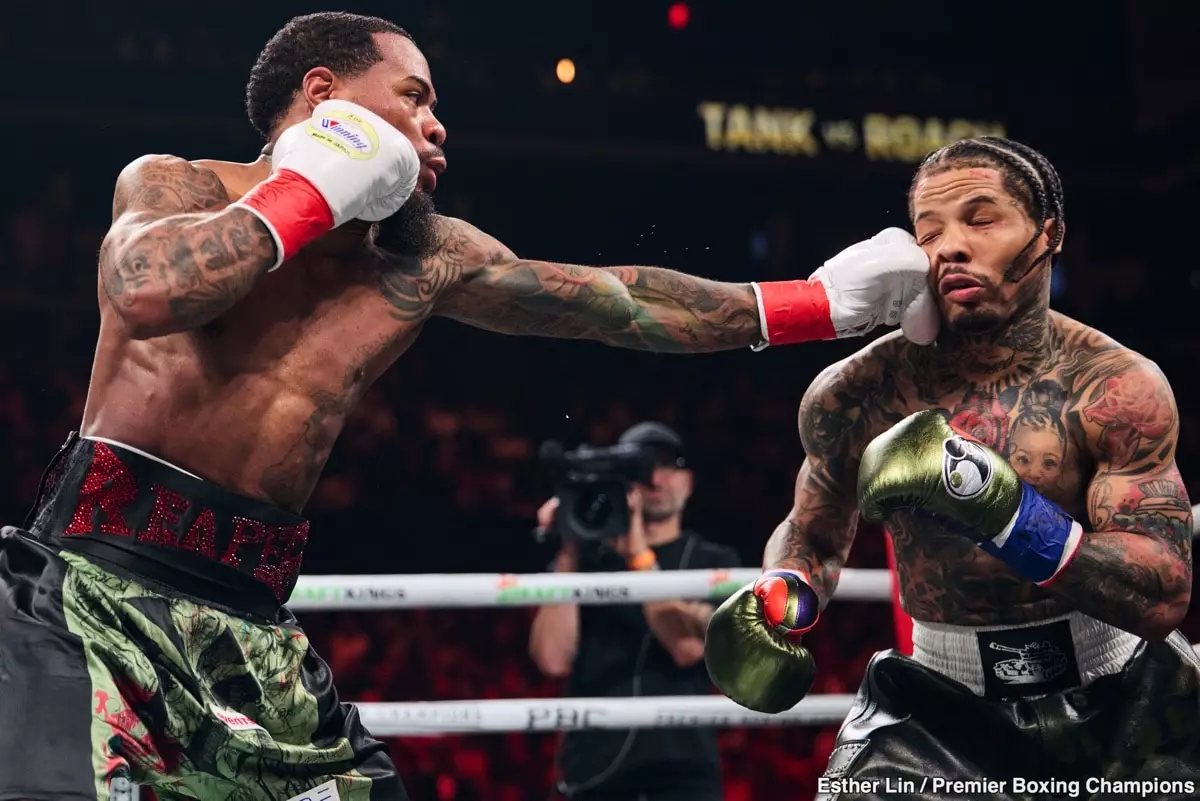The upcoming exhibition between Gervonta “Tank” Davis and Jake Paul epitomizes the modern era’s fascination with celebrity-driven boxing events. While many purists dismiss these matchups as spectacles devoid of legitimate competitive merit, the reality is more nuanced. This fight serves as a mirror reflecting boxing’s evolving landscape, balancing genuine athleticism with entertainment-driven narratives. Davis, a proven world champion with undeniable skill and technical prowess, represents the pinnacle of boxing credibility. Meanwhile, Paul, a social media influencer turned boxer, embodies the crossover appeal and commercial savvy that now dominate the sport’s landscape. The fight’s allure isn’t solely rooted in the actual boxing—the mismatch in skill levels and experience is evident—but in the cultural clash and built-in storytelling that captures the public’s attention.
For fans, this event raises critical questions about the future direction of boxing. Is it a sign of the sport’s decline into spectacle, or an evolution that reaches broader audiences? The truth perhaps lies somewhere in between. Fans eager for legitimate competition may see this as a distraction, a deviation from the traditional path of rising through the ranks and facing serious contenders. However, the growing interest in these crossover bouts indicates boxing’s ability to adapt, monetize, and reinvent itself—though sometimes at the expense of its integrity.
The Problem of Prioritizing Profit Over Progress
Davis’s reputation as a rising star and a multiple-weight champion is narrowly contrasted with his apparent disinterest in the competitive rematch against Lamont Roach Jr., a fight that could showcase real boxing rivalry and skill development. The fact that Davis “swerved” the rematch and instead TV with Paul underscores a troubling trend—fighters and promoters often prioritize financial gains over sporting merit. This pattern fuels criticism of modern boxing, where marketability and paychecks seem to outrank legacy-building and boxing advancement.
Roach Jr., a talented fighter with a respectable record, displayed understandable frustration. His social media posts, ridiculing Tank’s avoidance, highlight a broader issue: fighters relegated to the fringes of the sport’s top tier are often sidelined for bigger paydays or more marketable personalities. This emphasizes a systemic problem—boxing’s current model tends to favor the spectacle and the dollar over fair competition and fighter development. Consequently, fans seeking genuine rivalries are left to ponder: Are the sport’s true champions being sacrificed on the altar of entertainment?
The Narrowing Path to Meaningful Legacies
One could argue that the opportunities for fighters like Roach Jr. to ascend or even secure a fair shot at meaningful titles are diminishing. His recent declaration of a verbal agreement with WBC lightweight champion Shakur Stevenson suggests that fighter alliances and strategic moves are now dictated more by promotional interests and contractual negotiations than by merit alone. While a fight between Roach and Stevenson could ignite legitimate excitement and elevate both prospects, it also underscores boxing’s fractured landscape where fighters must navigate complex political waters.
The question then becomes: Is the sport moving away from its roots of fostering historical rivalries, or is it simply adapting to a new reality where spectacle, reach, and brand-building determine success? In my view, the sport is dangerously teetering between these states. While diversification through crossover events boosts revenue and exposure, it risks watering down the sport’s core competitive essence. Fighters who have excelled through grit and skill now find themselves sidelined, not because they lack talent, but because they lack the right promotional backing or marketable appeal.
What’s at Stake for Boxing’s Authentic Future?
This clash of worlds—genuine boxing talent versus entertainment superstar—highlights an ongoing debate about what boxing truly should be. Is it a sport that champions skill, resilience, and legacy? Or has it become a platform primarily driven by clicks, views, and viral moments? The answer, I believe, impacts the future of boxing more than any single fight. If the sport continues to prioritize viral spectacle over genuine competition, it risks alienating its most dedicated fans and losing its prestige.
Yet, there remains hope. There are still fighters like Roach Jr. and Stevenson who demonstrate that the core values of boxing—hard work, dedication, brutal competition—remain relevant. The challenge lies in how the sport’s infrastructure, promotions, and media prioritize these values amid the siren call of easy cash and viral fame. A balanced approach that respects both the entertainment aspect and the sanctity of competitive boxing could, in theory, restore integrity without sacrificing growth.
This divergence points to a fundamental question: Will boxing continue its slide towards superficial spectacle, or will it reconcile its entertainment ambitions with the essential virtues that made it a revered sport? Only time will tell, but the stakes are undeniably high for the sport’s long-term health and credibility.

